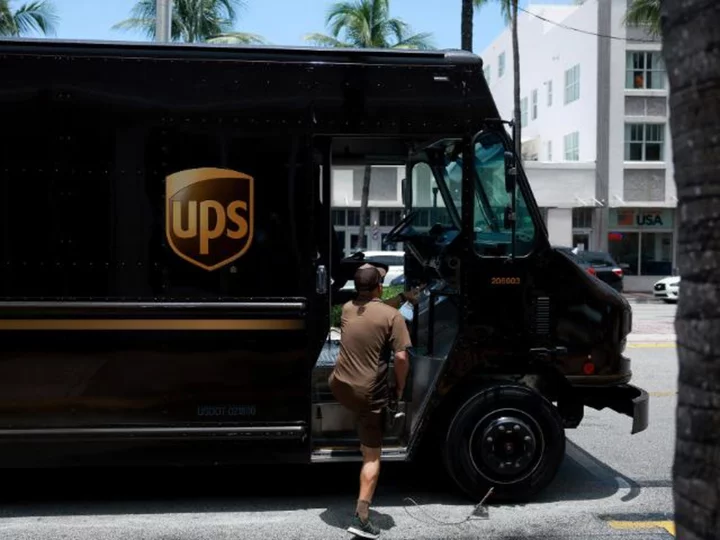Rank-and-file members of the Teamsters union have overwhelmingly ratified a five-year deal with UPS, putting an end to the threat of a crippling strike.
The union said 86% of members had voted for the five-year contract, which will now be in effect retroactive to August 1. It was the largest margin in favor of a contract ever at the company, the Teamsters said. The deal was reached on July 25, a week before the union had been set to go on strike. The ratification process has taken the four weeks since then.
The deal had overwhelming support among union leadership, who voted 161-1 in favor of the deal. Teamsters President Sean O'Brien called it "the best contract in the history of UPS."
"This is the template for how workers should be paid and protected nationwide, and nonunion companies like Amazon better pay attention," said O'Brien in a statement on Tuesday.
But some groups of part-time UPS workers opposed the deal. The outcome of the vote had been uncertain because of opposition from those part-time workers, who were upset that they're still being paid less than full-time employees doing the same work.
What's in the deal
Still, the union achieved many of its key negotiating goals, including across-the-board pay raises of $2.75 an hour that are retroactive to August 1 and total raises of at least $7.50 an hour, or more than $15,000 a year for full-time workers, during the life of the contract.
And some workers got even larger raises as the company agreed to eliminate a lower pay scale for many of the workers hired since 2018.
The company also agreed to address the complaints that 95,000 delivery vans in its US fleet do not have air conditioning. The union said that is more than an issue of comfort: It is a safety concern. Although UPS did not agree to retrofit the existing vans with air conditioning, it did agree to purchase only air-conditioned vans starting next year. And existing vans will be retrofitted with some changes to reduce the heat in the cargo area, where temperatures can pose the greatest threat.
The deal, and a ratification, will be expensive for UPS, raising its labor costs by more than 3% a year.
But the company had posted strong profits in recent years, with adjusted net income rising 70% during the previous 5-year contract. The surge in online purchases that came during the pandemic helped lift it to a series of record profits. But UPS' adjusted income for the first half was down 26% from the same period of 2022, according to earnings reports, even without the cost the new labor agreement.
Yes vote is good news for UPS
The deal is still good news for UPS, as it put the threat of a crippling strike to rest.
CEO Carol Tome told investors earlier this month that the company lost about 1 million packages a day to other services during the quarter ending in June, even though the strike hadn't been due to start until August 1. It could have lost far more business had a strike started, or even if the Teamsters had voted no and set a new strike deadline.
The ratification vote will allow UPS to work on winning back the customers it might have lost due to uncertainty. Tome said she was confident it will be able to win back that business.
"It doesn't happen overnight, of course," she told investors on an August 8 call detailing second quarter results. "It's already starting to flow back in. But we think by the end of the year, we'll win it all back."
UPS had only a limited statement about the vote, confirming that it had passed. But the company had previously called the deal a win for both the company, its employees and its customers.
Shares of UPS were little changed in after-hours trading on the news.
- CNN's Vanessa Yurkevich contributed to this report









